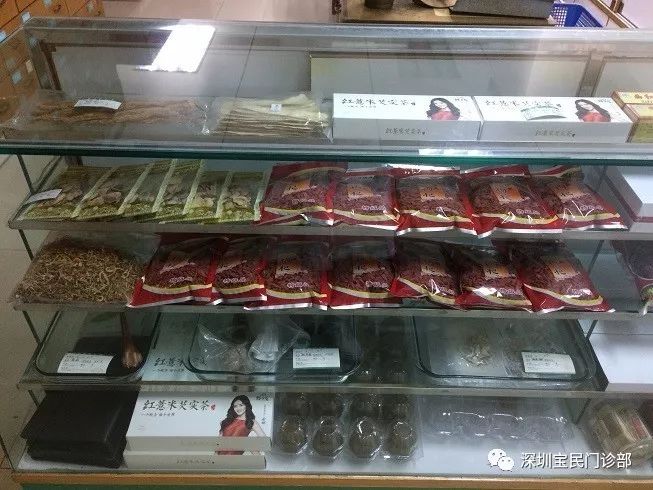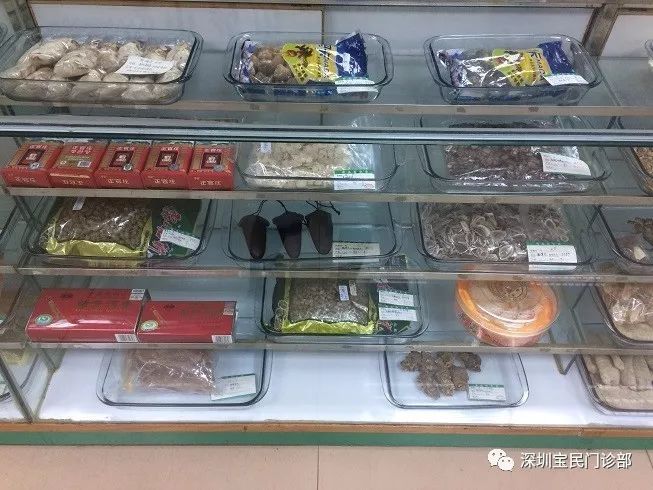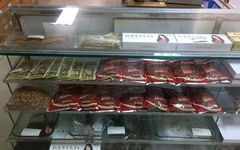Minor ailments in the body can be regulated effectively; if not properly managed, it can lead to a deteriorating constitution. So how can one regulate blood deficiency and dryness? What dietary adjustments can be made?

How to Regulate Blood Deficiency and Dryness
The principles and methods of TCM for treating blood deficiency and dryness mainly include strengthening the spleen and stomach, nourishing qi to generate blood, tonifying the kidneys to produce blood, removing stasis to generate blood, and detoxifying to generate blood.
(1) Strengthening the Spleen and Stomach
The spleen and stomach are the source of blood production. With a balanced diet and normal digestive function, blood production will naturally be continuous. Therefore, to nourish blood, one must first strengthen the spleen and stomach. A strong spleen and stomach ensure a continuous source of blood production. Commonly used formulas include Si Jun Zi Tang (Four Gentlemen Decoction), Si Wu Tang (Four Substance Decoction), and Dang Gui Bu Xue Tang (Dang Gui Blood Nourishing Decoction).
(2) Nourishing Qi to Generate Blood
The material basis of blood is essence, and qi acts as the driving force for transforming essence into blood. In clinical practice, based on the principle that “qi can generate blood,” tonifying herbs are often combined with qi-nourishing herbs. Commonly used formulas include Gui Pi Tang (Restore the Spleen Decoction) and Dang Gui Bu Xue Tang; commonly used qi tonics include Huang Qi (Astragalus), Ren Shen (Ginseng), Dang Shen (Codonopsis), Bai Zhu (White Atractylodes), Huang Jing (Polygonatum), Shan Yao (Chinese Yam), and Da Zao (Jujube); combined with blood-nourishing herbs such as Dang Gui (Angelica), Bai Shao (White Peony), E Jiao (Donkey-hide Gelatin), and Shu Di Huang (Rehmannia).
(3) Tonifying the Kidneys to Generate Blood
The kidneys are the foundation of congenital essence and are responsible for storing essence. Commonly used kidney tonics include Lu Rong (Deer Antler Velvet), Lu Jiao Jiao (Deer Antler Glue), E Jiao (Donkey-hide Gelatin), Gui Ban Jiao (Tortoise Shell Glue), Ba Jiao Tian (Morinda Root), Suo Yang (Cynomorium), Yin Yang Huo (Epimedium), Bu Gu Zhi (Psoralea), Tu Si Zi (Dodder Seed), Fu Zi (Aconite), Rou Gui (Cinnamon), He Shou Wu (Fo-Ti), Shu Di Huang (Rehmannia), Gou Qi Zi (Goji Berries), and Zi He Che (Human Placenta).
(4) Removing Stasis to Generate Blood
Whether the blood transformed from the spleen and stomach or the blood transformed from essence must be released and circulated through the meridians and marrow pathways. If there is qi and blood stagnation, the pathways will be obstructed, leading to insufficient nourishment of the marrow and depletion, resulting in a lack of blood production. Commonly used formulas include Tao Hong Si Wu Tang (Peach Blossom Four Substance Decoction), Bu Yang Huan Wu Tang (Tonify Yang to Restore Five Decoction), and Xue Fu Zhu Yu Tang (Blood Mansion Invigorating Blood Decoction). Commonly used blood-activating herbs include Dang Gui (Angelica), Chuan Xiong (Szechuan Lovage), Dan Shen (Salvia), San Qi (Notoginseng), Dan Pi (Moutan Cortex), and Xiang Fu (Cyperus).
(5) Detoxifying to Generate Blood
Traditional Chinese Medicine believes that whether due to internal emotional injuries or external pathogenic factors, prolonged stagnation can transform into heat, and heat easily depletes blood and injures yin. Furthermore, chemical, physical, or biological toxins can directly deplete essence and marrow, leading to a lack of blood production. Therefore, it is necessary to clear heat and detoxify. This is often used clinically for acute aplastic anemia, acute leukemia, and hemolytic anemia.

How to Nourish the Body for Those with Blood Deficiency and Dryness
Dietary Nourishment
Individuals with blood deficiency should regularly consume foods that nourish blood, such as spinach, peanuts, lotus root, black fungus, chicken, pork, lamb, and sea cucumber. Fruits such as mulberries, grapes, red dates, and longan are also recommended.
Mental Nourishment
People with blood deficiency often experience symptoms such as fatigue, insomnia, forgetfulness, and difficulty concentrating. Therefore, it is important to practice focusing attention.
Herbal Nourishment
Regular consumption of Dang Gui Bu Xue Tang, Si Wu Tang, or Gui Pi Tang is recommended. If both qi and blood are deficient, one should tonify both with Ba Zhen Tang (Eight Treasure Decoction). Shi Quan Da Bu Tang (Ten Complete Great Tonifying Decoction) or Ren Shen Yang Rong Tang (Ginseng Nourishing Decoction) can also be modified from decoction to pills for long-term use.
Herbal Supplementation
Commonly used blood-nourishing herbs include Dang Gui (Angelica), Shu Di Huang (Rehmannia), Chuan Xiong (Szechuan Lovage), Bai Shao (White Peony), and E Jiao (Donkey-hide Gelatin). These herbs can be combined with blood-nourishing foods to create delicious medicinal dishes, such as Dang Gui Lamb Soup and Si Wu Chicken Soup (chicken stewed with Dang Gui, Shu Di Huang, Chuan Xiong, and Bai Shao), which have excellent blood-nourishing effects.
Eye Care
Traditional Chinese Medicine holds that “prolonged viewing injures blood,” so individuals with blood deficiency should pay attention to resting and caring for their eyes to prevent excessive eye strain from depleting qi and blood. TCM believes that “the liver opens to the eyes,” and the health of the eyes depends on the liver’s ability to store blood. Therefore, one should avoid prolonged reading or computer use to prevent “prolonged viewing injuring blood.”
Daily Living
Individuals with blood deficiency should avoid overexertion. The brain’s blood supply is dependent on the heart, and our blood circulation is related to the heart. Excessive worry and fatigue can deplete heart blood, which undoubtedly exacerbates the condition for those with blood deficiency. Therefore, blood deficiency patients should avoid excessive worry and not overexert themselves. Additionally, TCM believes that our eyes are closely related to the liver, so cultivating good visual habits is beneficial for nourishing blood deficiency. Specifically, one should avoid prolonged focus on objects.

What to Eat for Blood Deficiency and Dryness
Red Bean and Pork Rib Soup
Ingredients: 150g red beans, 480g pork ribs (large), 5g dried tangerine peel, 3g salt.
Method: Soak the red beans and tangerine peel in water, wash clean; wash the pork ribs and cut into pieces; boil with an appropriate amount of water over high heat; add the red beans, pork ribs, and tangerine peel, then simmer until the red beans are fully cooked, adding salt to taste before serving.
Effect: It uses black beans, licorice, black sesame, and E Jiao as ingredients, benefiting qi and tonifying the middle.
Red Date and Glutinous Rice Porridge
Ingredients: 50g black rice, 100g glutinous rice, 10g dried jujubes, 6g Dang Gui (Angelica), 3g Yan Hu Suo (Corydalis), 15g sugar.
Method: Wash the glutinous rice and black rice separately, soak in cold water for 3 hours, drain; pack Yan Hu Suo in a small cloth bag; wash Dang Gui and jujubes in cold water; add about 1500ml of cold water to a pot, add black rice, glutinous rice, and Dang Gui, along with the small bag of Yan Hu Suo, bring to a boil over high heat; then simmer for about half an hour, add jujubes, and continue cooking for 15 minutes; add sugar for flavor, and let it sit for a while before serving.
Effect: It primarily treats abdominal cold pain, alleviates seizures, and relieves abdominal distension.
Himalayan Yam and Spinach Soup
Ingredients: 200g spinach, 20g dried yam, 3g ginger, 5g green onion, 2g salt, 25g vegetable oil.
Method: Slice the Himalayan yam, wash, and steam for 40 minutes; wash and cut the spinach into 6cm long sections; chop the green onion; slice the ginger; heat a wok over high heat, add vegetable oil, and when the oil is hot, add ginger slices and green onion to sauté; then add 800ml of water and bring to a boil; add spinach and steamed yam slices, and continue cooking until done.
Effect: It tonifies the five organs, nourishes both qi and blood, and fundamentally nourishes blood, effectively improving blood deficiency and dryness, strengthening the body, and ensuring long-lasting blood-nourishing effects.
In summary: If you find yourself with a constitution of blood deficiency and dryness, it is essential to regulate properly and consume foods that can nourish blood and qi!

